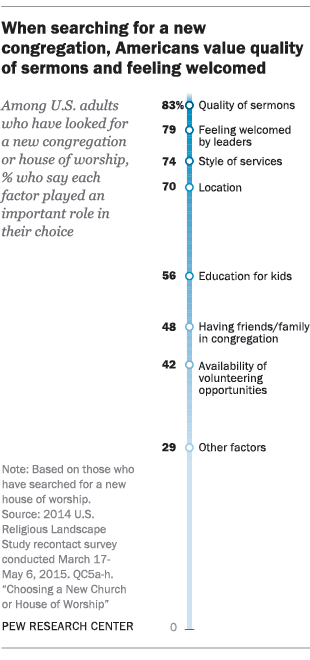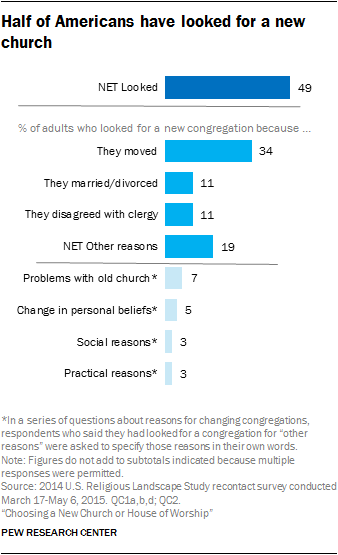Earlier this week, we looked at the importance of building relationships through the process of registration or joining a local church. Relationships bring people back. Relationships are a part of belonging, of growth, and more!
How Can We Train People To Have Fruitful Conversations?
Do we simply hand them a paper form and say, “help someone fill this out?” Absolutely not!
Remember, It’s Pre-Evangelization
The conversation is an exercise in what the Church calls pre-evangelization, not predominantly focused on proclaiming the Gospel and offering a chance for life transforming response, but instead connecting with or awakening the desires and values of those we meet with what we embody as Christians (General Directory for Catechesis, §47-48). Sherry Weddell’s maxim, “never accept a label in place of a story” certainly implies. Simply because the person identifies as Catholic is no guarantee that pre-evangelization isn’t important or necessary.
Pre-evangeliztion matters because it creates the conditions for a relationship of trust, it inspires interest–and without trust and interest–the proclamation of the Gospel of Jesus Christ is a lot less likely to be responded to. While it’s incredibly tempting for us to want to enthusiastically proclaim the saving message of Jesus Christ to a person as soon as we get a chance to 😀 we may be creating stumbling blocks to a response by offering something so profound before we’ve even built the smallest amount of trust with a person. Think of Sherry Weddell‘s “5 thresholds of conversion” (pictured below). Making the pitch for an intentional life as a disciple of Jesus Christ before having a firm establishment of trust, curiosity, openness, and active seeking or interest is trying to work around our human nature!

If a conversation that starts as pre-evangelization turns into a place where a person can make a life changing decision to follow Jesus Christ and pray for forgiveness and a new life in the Spirit, then praise the Lord! God can do marvelous things, inspite of all our human weaknesses. However, I’d strongly caution against fostering the idea that this is the immediate goal/purpose of a registration conversation, because it may tempt those trained to think of that rather than building trust and curiosity as their specific ministry.
Conversations that Build Trust and Curiosity
The best way to train staff and volunteers for this “joining” ministry is role-playing. Many of us loathe it–but the reason we secretly dislike it 😉 is because it’s hard. We have to think on our feet, rather than passively listen to a “how to” talk. It’s the most valuable training for precisely that reason–it helps us become comfortable and confident in this ministry role.
There’s no silver bullet list of questions or order of discussion a conversation with a person joining a parish must follow, what I offer below are a series of conversation starters with a say and a listen for component.
Say: Each conversation starter includes a “say,” often in the form of a question to ask. Within these, various linguistic options are suggested in [brackets].
Listen For: Some tips on what to be listening for to guide the conversation further or complete a form to join the parish.
Basic Introductions
Say: Welcome! My name’s ____________, I’m so glad you’re interested in learning more about joining All Saints Catholic Parish.
Listen For: Tone. Do they seem comfortable already? Nervous talking to someone at a church? Ready to get this over with? Critical about “why can’t I just fill out a form and be done with this?”….
Say: Thanks for taking the time to come and register, what brings you to All Saints? [How’d you find us, get interested in our parish, etc.?]
Listen For: Their answer to this is key data collection (on your part) for whoever leads Engagement, Marketing, or Outreach at your parish.
Moving Deeper
Through your basic introductions, hopefully you’ve come to know something about each other–where you live, occupations, interests, etc. These are some follow-ups that help take “basic information” to the level of “interesting conversation I don’t normally get to have” (aka, I’m enjoying this!)
Say:
- Wow, with those moves and different jobs, what’s the greatest lesson you feel you’ve learned so far in your life’s journey?
- Oh interesting, I do [or don’t] meet many [insert occupation]. What do you like most about what you do? or What motivated you to pursue that path?
- With those different [hobbies, spiritual journeys, homes, etc.] what experiences have shaped your worldview the most?
- It’s definitely a busy stage of life [raising kids, getting ready for retirement, navigating care for aging parents, starting off new, etc.]…what are you passionate about in this season of life?
- What makes you [and/or your family, spouse, etc.] happy?
- With those [work/hobbies], what kind of people do you look up to? What attributes in people are most important for you?
- [For someone who is giving verbal or non-verbal signals that they don’t like this “registration conversation” concept, maybe some humor…] so, I figure sitting down to have to talk to someone about registering at a church might be the most boring part of your week…but, what’s been the best part of this past week for you?
Listen For / Do:
- Ways to “push their ideas a step further. Ask why and how more than what and when” (from Science of People)
- Opportunities to make them feel important, to feel that their opinions/interests, matter
Getting the Mundane Details
Say: We’re so happy to have new folks like your family joining All Saints, would you mind if I jotted down some info from you so that we can make sure you start getting parish newsletters, emails about events, and things?
Listen For: Answers to basic info you might need: full mailing address, phone number, email address, children’s grades/ages. Through your conversation you should already know what town/city they live in, occupation, religion (likely to come out in the “what brings you to All Saints…” question). If not, feel free to ask at this point, as you’ve built a human relationship first, and are only now collecting that “important to write down” type of detailed information.
Background Prep: Before training your team, think through what information you truly need at this step. Make it as short as possible. In a world of information “over-collection,” you can show trust by not turning registration into an interrogation of all personal information a family might possibly have! 😉 For example, you need the information to stay in communication with the person/family, and to know other people in the household who might not be at this conversation. A parish likely doesn’t truly need to know dates of children’s baptisms, emergency medical info, etc. This can all come later, through growing relationships with youth catechetical leaders, etc.
The Turn to the Spiritual Life
Say: There’s such a wide range of people here at All Saints Parish and so many opportunities. We really learn from each other as we seek God. [Insert cultural statements appropriate to your parish of course!] Would you be willing to…
- describe/share [or: tell me the story of] your lived relationship with God [or: connection with God, connection with Jesus] up to this point in your life?
- share a little of yourself, do you pray? do you find it a struggle? how do you like to pray?
- share some of the ways your faith causes you to change how to live your life? or things in your faith that seem like a struggle?
Listen For:
- What the person believes about God and the possibility of a relationship with God (i.e. God is impersonal force, a person they do connect with)
- Additional religious affiliation (not already stated etc.)
- What bridges of trust or curiosity they have to Catholicism/Christianity
- if they’re comfortable using the name, “Jesus”
Follow Up Ideas to Go Deeper:
Choosing depends on the listening throughout the conversation, remember not to make a huge or uncomfortable “jump” into the deep end of a pool a person hasn’t even mentioned swimming in 🙂 Just take a little step down the ramp in the shallow end…
- For you what’s the most important thing about Jesus?
- Have you had any kind of moment when you felt particularly close to Jesus? If so, can you tell me about it? If not, have you ever wanted to?
- What do you mean by describing yourself as ______________?
- How do you describe God to others [or your kids]?
- What does it mean to be Catholic in your experience?
Remember, during this conversation you’re not correcting, catechizing, or judging–you’re helping spur the person to talk and share as much as possible so that you can listen. This takes a tremendous trust in the Holy Spirit, that by experiencing genuine love and listening, this person will open up and continue to come back.
Affirmation and Closing
Say: Pour on the praise and affirmation for what the person shared with you, taking the time to have this conversation. Share how you’ve been enriched by hearing their perspective, how they have real spiritual insights, how you found their life story interesting.
–> If the person showed genuine interest, i.e. “what do you mean personal relationship with Jesus, isn’t that for Protestants?” that’s an opportunity to take it another step further and share the Gospel with them and offer a concrete way to respond in prayer.
In Closing Offer: Is there any way I can pray for you, or even with you right now? Or anything I can help you with? Would you want to get together again, we could…or I just look forward to seeing you around the parish in the future! [If you parish has cards with social media outlets, bumper stickers, coffee mugs, or any other “reminders” for new members, this is a great time to give it.]
Silver Bullet? No
This is certainly not the best training outline, nor suited for every parish. However, I offer it as a starting point–it’s a great draft to begin role-playing, to begin training staff/volunteers to have “registration conversations” with people, rather than hand out or email a form that gets returned without personal contact. I recommend staff/volunteers also familiarize themselves with “threshold conversations” (Weddell) and giving their own personal testimony, as those would be likely follow-ups for a person who shows great interest and openness to hearing about what God is ready to offer them, right in this moment.


 So how do these Americans explain the reasons for changes?
So how do these Americans explain the reasons for changes? 


 In
In